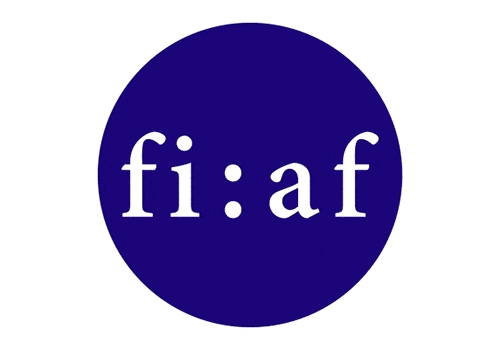
How to Become a French Tutor
Becoming a French tutor can be a rewarding experience.
If you want to but don’t know how to become a French tutor, we’ve boiled it down to 14 crucial steps, from honing your language skills all the way to building your reputation.
Contents
- 1. Hone your language skills
- 2. Take a French tutor training course
- 3. Develop your teaching style
- 4. Build your credentials
- 5. Decide how you want to teach
- 6. Know the curriculum
- 6. Build your own lesson plans
- 8. Set up your business essentials
- 9. Price your services
- 10. Make a website
- 11. Spread the word in your community
- 12. Start networking
- 13. Advertise online
- 14. Build your reputation
Download: This blog post is available as a convenient and portable PDF that you can take anywhere. Click here to get a copy. (Download)
1. Hone your language skills
Make sure that you understand what it takes to become a language teacher. As a tutor, you should be able to anticipate and answer your students’ questions with accuracy and confidence on any subject.
Be on top of key grammar, conjugation and spelling rules. Review the “Bescherelle Conjugaison” and “Bescherelle Grammaire” prior to a class and don’t hesitate to proactively complement that with exercises targeting the function you’ll be focused on during your sessions.
Stay current on French culture as well. Reading French news and watching French videos every day can help you engage in meaningful discussions with your students about France, as well as maintain your own French language skills. To maximize efficiency, be sure to jot down some notes about interesting content and use it in class.
For example, you could prepare simple, general questions about topical or cultural subjects and ask your students for their opinion on the matter. This will help improve their speaking and communication skills in French while building a closer, more natural relationship with you.
2. Take a French tutor training course
Taking a course on how to tutor can be really beneficial. Not only will you get tons of ideas on activities and tasks you can do with your learners, but you’ll also likely get to try them out on fellow students during the course. This can help when it comes to your confidence in your own teaching abilities.
You’ll also get to learn some of the educational theories behind why teachers do what they do, which will help you to understand how to get the best out of your students.
Nowadays, you can actually train in teaching French as a foreign language with a short course abroad in France. A number of companies provide interested tutors the opportunity to train in cities like Nice, Lyon and Montpellier. There, you could combine a vacation abroad with courses to earn a practical qualification.
Some of the most popular companies that offer teacher training include:
- ESL: ESL offers a number of training modules for aspiring French teachers. You can also choose between one to four-week training sessions, and have the option of staying with a French family while you study.
- Cactus Languages: Cactus Languages has courses designed specifically for non-native French speakers. They offer one and two-week programs and refresher courses located across France and in London.

- France Langue: With France Langue, you can take courses throughout the year in various locations in France. What’s more, you even get to choose between group classes and one-to-one courses, which is great for those wanting to really maximize the support received.
- LanguageCourse.net: This site offers teacher training courses throughout the year in various locations across France. Like France Langue, you can also choose between group and one-on-one classes on this site, as well as browse between class sizes.
- ILSC Montréal: If you prefer to stay closer to home, ILSC also offers certification courses to become a French teacher.
- American Council on Teaching of Foreign Languages: The ACTFL provides training and certification as well as additional resources that teachers can use to continue their lifelong education.
Once you’ve actually begun work as a tutor, look out for extra training opportunities offered for existing French teachers at places like the French Embassy in the US.
Teaching is the kind of skill that really benefits from ongoing training and development.
3. Develop your teaching style
Being an expert in the language isn’t enough to be a stand-out tutor. You’ll need to develop a teaching style as well.
Education has evolved considerably over the past few years. Interesting new groups of teaching methods have sprung up recently and revolve around encouraging the student to awaken their curiosity and desire to learn.
Most modern tutors integrate all four skills into their lessons (speaking, listening, reading and writing) so that students get a balanced education. Often, they include games or interactive activities to help students learn. Think about how you might do this in your own lessons to keep your students engaged.
For example, the flipped classroom model involves the student preparing the lesson before class. Time in class is then spent answering questions and using the new material, making student-teacher interaction more productive.
Once you’ve thought about what kind of teaching style you want to use, turn your attention to how you’ll get the best out of each student. Just like teachers, each person has a different learning style and you’ll need to provide variety to really help your students to excel.
Start off by reading up on the different learning styles and how to develop the skills for teaching various types of learners. Some things work really well for some students and not so well for others.
It’s always a great idea to read French language blogs designed specifically for educators on a regular basis. You should also engage in French forums for tutors to exchange teaching tips and lesson ideas.
Knowing the various methods that are available to you is important when you’re a tutor.
Here‘s a more detailed overview of the most effective language teaching techniques. Find one that works best for you and your students that generates results.
4. Build your credentials
Whether you’re new at tutoring French or are a veteran French tutor, it’s important to showcase your experience with French. To establish credibility as well as stand out from your competition, you want to show your track record as well as what makes you uniquely positioned to provide French tutoring services.
Start by highlighting what makes you a good tutor. This can include your years of study, time spent in a French-speaking country, the types of classes you offer and your style of teaching. Don’t be shy to take the time to list your skills and ask yourself what your strengths are in this area.
Don’t forget about your personality while coming up with your skills. When it comes to tutoring, patience, a good sense of humor, an analytical mindset and strong organizational skills can prove very valuable and can be great differentiating factors.

In the United States, all states require that primary and secondary teachers are licensed and certified. Typically, that means holding at least a Bachelor’s degree in French or Education, completing a teaching internship, passing a teaching exam and passing a criminal background check. However, keep in mind that each state is unique and may have different requirements. Do your research and verify what your state requires if you intend to make tutoring a more permanent career.
Lastly, it may also be worth joining certified boards and organizations for language tutors. This will completely depend on your objectives, but one such board to explore is the American Council on Teaching of Foreign Languages.
5. Decide how you want to teach
To start with, you could work as a tutor with an agency in order to gain experience and confidence in the job — and some of you might be happy to work that way permanently. There is usually a requirement for qualifications, however, so this might not always work out if you haven’t completed a French tutor training course.
Think about whether you want to attract students to work in-person or online and market yourself accordingly. Working with students online can be convenient and gives you a much larger market to play with, but only works for tutors with stable internet connections. Working with students face-to-face can flow more easily for some, but you’ll either have to travel to meet students or have them come to your home — it’s important to manage your time accordingly.
If you’re still not sure which type of tutor you want to be, try both methods and see which you prefer.
6. Know the curriculum
Review the syllabus you’re going to teach and be very familiar with it. This will help you bring coherence and structure to your classes. In addition, knowing your lesson plan is a great way to show your students your high level of preparation and let them know what functions and objectives you’re targeting. Make sure to target specific language goals and base your lessons on your students’ existing learning skills.

Some potential syllabi you might end up teaching include the SAT French, AP French, DELF and DALF or the TCF. Be sure to review the specificities of each program. The AP French exam, for example, focuses on six themes that students should master.
Preparing students for official tests may be both challenging and rewarding, considering that the demand and cost for tutors who know official tests inside and out is generally higher than average.
6. Build your own lesson plans
Purchase essential teaching materials if you don’t already own them. “Le Bled: Orthographe, Grammaire, et Conjugaison” is a precious helper you’ll want to keep close by. Use it when you need to quickly review a rule or create exercises.

Also, I recommend purchasing a grammar book for those times when you get asked obscure questions about the language. My favorite is “Le Bon usage.” This grammar book has been an indispensable part of my library. It’s thorough and will answer even the most random of grammar questions for those ambiguous exceptions to the rule.
Keep in mind that the best French lessons are designed by you! It’s important to have a special sauce: Create unique lesson plans that your students won’t find anywhere else. Use your own experience with the French language and culture and come up with content and anecdotes that you’ve found interesting, but are little known about France.
One place you can turn to for inspiration is French radio sites. They generally have in-depth articles that can provide an interesting point of view on a new subject. France Inter has a wealth of captivating programs to get you started. We particularly love La Marche de l’Histoire (The March of History), which delivers insights on key historical events, as well as La Revue de Presse (The Press Review), which summarizes and discusses major daily news and events in France and around the world.
Make your lesson plans fun and interactive to maximize their effectiveness. Try different activities that will keep lessons enjoyable and fresh. For example, rather than simply asking your students to read a text or dialogue out loud, ask your students to bring the content to life using role play. If you study a text that discusses professions in French, you could ask your students to pick a job they like and act the part.
How do they interact with clients? How do they talk about a product or a service they offer? This will make your lessons more lively and encourage your students to use their creativity.
Downloading French language apps can also help you make the most of your teaching experience. Here are some good ones to get you started. Aside from giving you a wealth of ideas, they can bring structure and fun to your classes. Some of them even allow you to monitor homework, track progress and engage with your students’ parents.
For instance, the FluentU program lets you assign French media clips (think movie trailers and other pop culture videos) as homework. These videos come with interactive bilingual subtitles that offer language notes when you hover or click on them. Once the clip is done, students can take a quiz to review new vocab and concepts, and their results will appear on the teacher dashboard.
Give them a try and find one that works best for you. It’s important that your students like your classes and see results to generate repeat business!
Offer different courses for different types of students (business, school-age, adults), planning slightly differently for each type of course.
It’s better to use a textbook that your student can buy. You can easily find books and resources for the courses you want to teach on sites such as the European Bookshop and Amazon, or you could check out Pearson, one of the most popular educational publishers around the world.
8. Set up your business essentials
![]() Unless you don’t mind putting your personal contact information out there, it can be a wise idea to create a dedicated business email that will link to your French tutoring services. You can do this easily on any free email platform, such as Google’s Gmail.
Unless you don’t mind putting your personal contact information out there, it can be a wise idea to create a dedicated business email that will link to your French tutoring services. You can do this easily on any free email platform, such as Google’s Gmail.
Additionally, you should sign up for a Paypal business account to maximize the payment options you offer. Look into Square and alternative credit card acceptance services as well. In some cases, that can make the difference between getting a client or not.
9. Price your services
Decide how much you want to charge per lesson. This is a very important step because if you price it too high, you may alienate yourself from a significant client base. Price it too low and potential clients may not take you seriously. When setting a price, it may be worthwhile spending the time to investigate what your competitors charge for lessons.
Search the Internet to give you an idea and be on the lookout for French tutoring ads in your area. It’s also a good idea to ask around to find out what the market rate is.
You may also want to factor in your own costs when setting a price. List tangible and even intangible elements, such as gas price and commute time if you’re traveling to your students’ place, printouts and other materials handed out to students, time to correct homework if it applies and even the cost of acquiring each client (e.g. cost to place an ad, referral fee, etc).
Then, create a smart pricing strategy. A good way to up-sell your services is to offer options. Rather than have your students pay for a single class, incentivize them to pay for a bundle of classes upfront. This may help to bring cash flow and predictability to your business. A good way to do this is to increase the cost per unit for a single class and lower the cost per unit for a set of classes.
For example, if you charge $30 for an hour class, offer a 20% discount for a set of 10—that’s $240 for 10 lessons or $24 per lesson. You have the option to put an expiration date on these classes.
Use the same principles to encourage students to book longer classes or book group lessons. For example, offer the option of a 2-hour session for $50 or $25 an hour. This is particularly effective at limiting time waste for you.
For group classes, lower the cost per student to $18 an hour for a class of three. This is a great way to accommodate students with less disposable income, as well as increase your hourly rate. Keep in mind that group classes, however, are more intensive for you and require that you’re able to pay the same level of attention to each attendee as for individual lessons.
Lastly, offer incentives. It’s a great way to generate new business. A smart way to encourage your students to refer you to their friends is to let them know that you’ll give them a free lesson for each friend that they bring to you.
10. Make a website
 Create a basic website and showcase your services. Wix has a lot of easily customizable templates to choose from that can help put your tutoring business to the best light.
Create a basic website and showcase your services. Wix has a lot of easily customizable templates to choose from that can help put your tutoring business to the best light.
Google Sites, Blogger and Weebly are other options for easily making a simple site. Don’t get too hung up on this part; you can polish and adjust as your business expands.
For now, you just need to show your background, specialties, rates, contact information and testimonials somewhere for students interested in your services.
11. Spread the word in your community
Start telling the world that you’re a French tutor. Your friends and acquaintances may be great funnels for referrals, but they need to know that you actually are able to tutor French! Also, be sure to tell them about your credentials briefly and share your website. It may come in handy if they actually meet someone who’s looking for a French tutor and they ask about your level of experience.
Create catchy ads, print them and display them in high-traffic areas. Highlight your qualifications and what makes you the best tutor. Don’t forget to mention the essentials, including where the classes take place, teaching style, past experience, time spent living in France or in a French-speaking country, and your phone number or email address.
12. Start networking
Talk to people you don’t know about your tutoring services. In order to convey a high level of professionalism and your commitment to this activity, it’s a good idea to create simple business cards and hand them out to the people who show interest in your services, as well as small business owners who can help quickly spread the word out for you to their clients.
Zazzle offers a large selection of business cards and even lets you create and customize your own from scratch. Alternatively, try Moo for high-design business cards that will make an impact.
 Do your research on nearby schools that teach French. There may be some students who are interested in tutoring services. Introduce yourself to the staff and ask to display your ads in the school.
Do your research on nearby schools that teach French. There may be some students who are interested in tutoring services. Introduce yourself to the staff and ask to display your ads in the school.
Consider setting up a LinkedIn profile at some point. It can help to advertise your services away from the rest of the competition. Gather testimonials from students to display on your profile and get a professional headshot. People respond better to a human face when looking for services.
13. Advertise online
Craigslist can actually be a great start, despite its unpolished feel. Use the catchy ad you wrote and place it on your local Craigslist page. Don’t forget to repost the ad occasionally. Depending on your location, the ad expires within seven days to a month.
WyzAnt is a platform for tutoring in-person as well as online, but tends to be focused on helping people find teachers for any subject in their areas. If you’re mostly interested in tutoring in-person, Wyzant can be a more professional alternative to a resource like Craigslist.
Verbling is another great resource to find a tutoring job, but specializes in online teaching. Start by applying to teach and set up your teacher’s profile using a catchy description, picture and proposed rate. Make sure to set your preferences and enjoy the flexibility.
Livelingua is a community of teachers from all over the world who tutor French exclusively via Skype. Sign up for a free account and start teaching on your own time. Keep in mind that this is open to native French-speaking tutors only and that you need to meet certain standards in order to be approved on their platform.

You might also want to take a look at Care.com for local tutoring jobs across the United States. Think of it as an online classified board specifically for caregivers, including educators and language tutors. You can normally sign up for free and set your own prices and the directory will take a small cut of your earnings.
One drawback that can work against you, however, is the competition on these sites. There are hundreds of tutors listed and you’ll need to work hard to make your profile stand out from the rest.
14. Build your reputation
Contribute to French language blogs and share your expert knowledge online. Aside from highlighting your expertise as a French tutor, these sites often let you place your own byline and link to your website. Make sure to take the time to craft informative articles and write a catchy byline to attach to your articles, including a link back to your website.
Be active on social media as well. This is an additional way to showcase your skills, opinions and personality as a French tutor. This will allow students to know you better and can also be helpful in generating new business as well. Don’t neglect LinkedIn and spend some time perfecting your profile. This can enhance your credibility as a professional tutor when prospective students look you up to verify your credentials.
Also, when you start to make some money, consider taking out a paid advertisement on a social media platform targeting readers in your area.
Now that you know how to become a French tutor, all you need is to take the jump and most importantly, enjoy the ride!
Download: This blog post is available as a convenient and portable PDF that you can take anywhere. Click here to get a copy. (Download)



